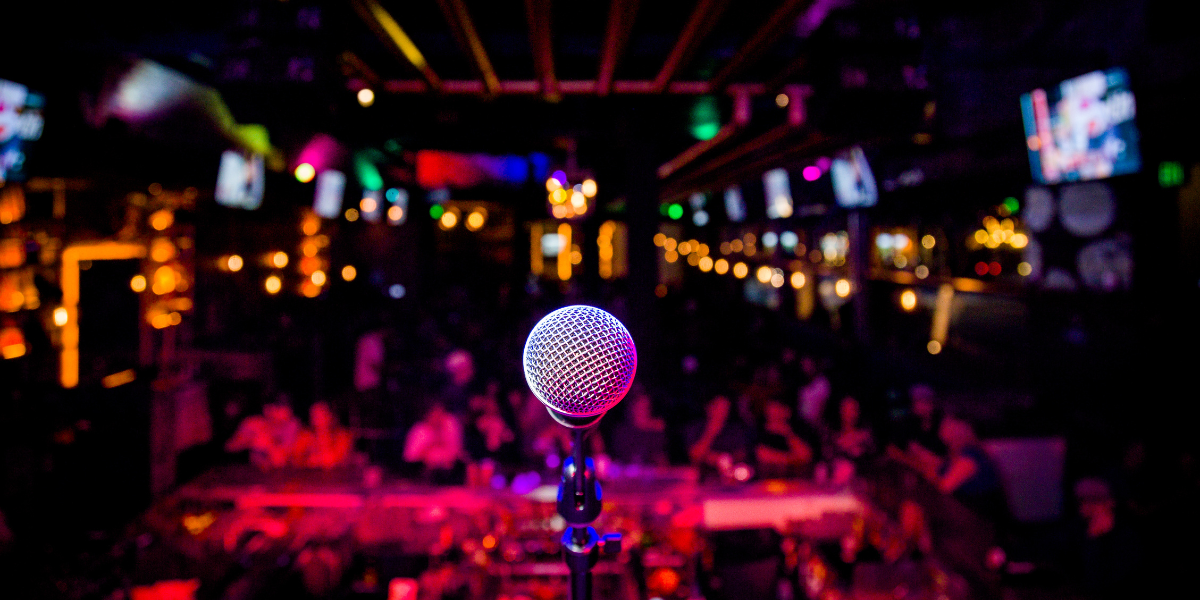Alright, picture this – comedy and sensitivity doing a constant cha-cha, where what cracked us up yesterday is stepping on toes today.
USC Dornsife’s Lanita Jacobs, associate professor of American studies and ethnicity and anthropology, wisely notes, “the jokes that once had us in stitches a decade ago might not elicit the same laughter today.” In the audience of comedy clubs, we’re on a journey where the punchlines of yesteryear fall flat in the evolving landscape of societal change.
Jacobs, delving deep into this dynamic in her latest book, To Be Real: Truth and Racial Authenticity in African American Standup Comedy, navigates the complexities of racial authenticity through the lens of Black stand-up comedy. It’s a captivating exploration of how comedy mirrors and molds societal perceptions, especially when it comes to the realm of racial identity.
I get this dance because I used to be in those worn-out comedian shoes. Yeah, I’ve been in the trenches, cracked jokes that made some folks see red, and heard my fair share of heckles that could make a sailor blush. Finding that sweet spot between pushing boundaries and not crossing an invisible line – It’s like walking a tightrope over a pit of snapping alligators with iPhones. I’ve been yelled at, pushed things “too far.” I’ve had to swallow my pride, tuck my tail between my legs, and serve up a good ol’ apology. Comedy ain’t all laughs; it’s a wild ride with its fair share of bruises.
Just because I’ve been through the comedy wringer doesn’t mean I – or my compatriots – get a free pass to say whatever, consequence-free.
Denise Zubizarreta
But here’s the kicker – just because I’ve been through the comedy wringer doesn’t mean I – or my compatriots – get a free pass to say whatever, consequence-free. Sure, legends like Mark Russell and George Carlin scrutinized norms like nobody’s business, usually by punching up. But here’s the catch – they didn’t throw responsibility completely out the window. Comedy’s a weapon, no doubt, but wielding it means understanding the power it packs and the impact it can have.
Even psychology research has weighed in on disparagement humor, as it simultaneously communicates two conflicting messages. One is an explicit, hostile, or prejudiced message combined with an implicit message that “it doesn’t count as hostility or prejudice because I didn’t mean it – it’s just a joke.” Beyond intent, when prejudiced individuals perceive such humor merely as a joke targeting its victim, the repercussions are more than a punchline. It can become a dangerous conduit, releasing bias into the social fabric with serious consequences. The laughter disguises a deeper issue, emphasizing the critical impact humor can have on perpetuating and normalizing hate. Comedy is a potent instrument that shapes societal attitudes (for good or for bad), making the repercussions of a seemingly harmless joke far more profound than we might casually assume.
On the flip side, some people are always going to be offended, some will take whatever personally, and some can not separate themselves from the joke. In cases like that, it’s difficult to discern if the joke is the problem or if the person receiving it is. There is often no happy medium but there are key things we can steer clear of to avoid pushing prejudice through jokes, which is ultimately the main concern when we talk about what works and what will always hit a brick wall.
Once upon a time, minstrel shows were hailed as comedy gold. But today we see them for what they are – outdated and pushing harmful stereotypes. Back then, if you dared to criticize them, you’d get slapped with the “too sensitive” label too. Like, raising concerns about offensive content is some kind of crime. Fast forward to now, and it’s crystal clear – changing social norms have been pulling the strings all along and continually reshaping the comedy scene. Audiences aren’t necessarily always being overly sensitive; they’re just clocking the fact that diverse perspectives aren’t a threat but a chance to grow. Society is embracing an era where criticism is a significant catalyst in reshaping fields such as comedy, the arts, labor rights, and human rights.
Embracing criticism isn’t a hit on humor; it’s the secret sauce for getting better.
Denise Zubizarreta
Comedy’s also often griping about not being taken seriously as an art form, but here’s another kicker – art means taking the heat. You can’t evolve without a bit of self-reflection and change. Sure, comedians excel at tearing down societal norms, but when the spotlight turns on dissecting their own jokes, it’s a different story.
Everyone’s yelling, “Comedy’s an art form!” Well, guess what? Legitimacy doesn’t just stroll in without scrutiny. Embracing criticism isn’t a hit on humor; it’s the secret sauce for getting better. If you’re in a profession that messes with norms, you’ve got to handle the heat of honing your craft. It’s a two-way street, folks – challenge society and challenge yourself.
Big-shot comedians swimming in fame and fortune better watch out – they’re playing with fire. Ignoring what the crowd wants for a solo ego trip is a dangerous game, especially in the era of internet critics. Forget the good ol’ water cooler gossip; it’s a whole new ball game online. In today’s digital jungle, these comedians are treading on thin ice. Lose touch with the audience, and boom! your comedic kingdom could crumble faster than you can say “joke’s on me.”
Comedy likes to think of itself as the one pushing all the buttons, but let’s not forget, it also reflects what we think is funny, cringe-worthy, or deep. In this dance of laughter and changing vibes, comedians need to keep tweaking their acts to collaborate with society’s ever-shifting groove. Brushing off that reality? Well, that’s no joke.

